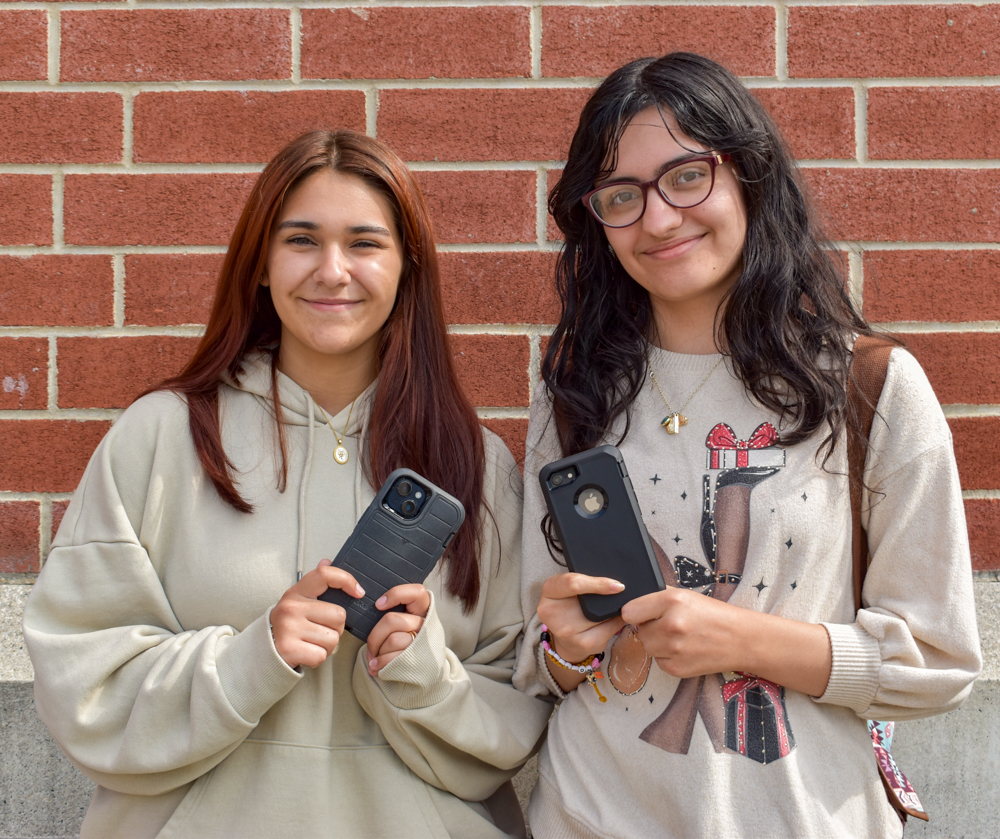Principal satisfied with phone policy, students still have hang ups
Buzz.
It’s another notification.
For many, it can be hard to fight the urge to check their phone, and this includes students.
Superintendent June Saba-Maguire said even she has to put her phone away during meetings because “I know if it buzzes, I am going to be tempted to look at it.”
But as Dartmouth High School enters its third year with its “phone hotels,” Principal Ryan Shea believes he’s found a policy that works for his school.
As the policy currently stands, students are required to place their phones in “hotels” that are stationed in each of their classes — this is an alternative to having them in lockers for the entire day.
Shea highlighted how the policy still allows students access to their phones in between periods and during their free time, but eliminates the distraction when they are in the classroom.
Saba-Maguire said she has received positive feedback from teachers regarding the policy, adding how they’ve said “it really does allow students … to be more focused on what’s actually happening.”
She said, “The phones are in the classrooms, so they do have access to them in the event that they would really need to text or contact their families or if there was an emergency.”
Shea said this also gives students the opportunity to use the devices for educational purposes, such as taking photographs for a science project.
“We wanted to teach responsible phone ownership,” he said. “We know the dangers of cell phones, and we know the dangers of over usage and over obsession of it.”
He added he wants the students to know what it means to use cell phones as a tool and to support their growth before they graduate, and so far, he believes it's working.
“I think students are really getting used to it,” Shea said, adding how now that more schools are implementing complete bans on phones, he believes students understand the privilege it is to have this responsibility.
While many students said they recognize the benefits of the policy, they still had their gripes.
Junior Giselle de Barros said, “Honestly, I do like the hotels because I feel like you are able to focus more.”
However, she said she doesn’t like that some teachers will take attendance by collecting the phones because it unnecessarily singles out students who may not have one or did not bring theirs to school.
Junior Jasie Tam agreed the policy was beneficial, but said she would still like to have her phone with her in the event of emergencies.
Senior Madison Sylva said it shouldn’t be mandatory for all students.
“It’s kind of like a punishment for all instead of a punishment for those who don’t follow the rules,” she said, adding how now students who would have just listened are more likely to try and sneak their phones with them.
Sylva said she prefers to have her phone for emergencies and just to feel secure in general.
“I see why it’s there and I see its purpose,” she said, “but it's not for everyone.”
Senior Karen Novo said some classes are more strict than others and when teachers tell them to put it in their backpacks “usually nobody touches their phones.”
In regard to the policy, she added, “They don’t keep it as a standard — eventually throughout the year, they get looser and looser on it.”
Junior Emily Pereira said she has personally found the hotels helpful, and pointed out that they have helped those who are trying to improve their grades.
Still, there are those who will find other ways to circumvent the policy, such as by using their apple watches, said Junior Haydon Raposa.
“You should be able to control yourself, honestly,” she said.













